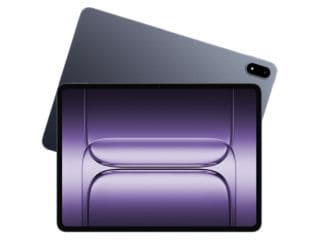- Home
- Mobiles
- Mobiles News
- Google Collects 20 Times More Data on Android Than Apple Does on iPhone: Study
Google Collects 20 Times More Data on Android Than Apple Does on iPhone: Study
Google and Apple both collect data from Android and iOS every 4.5 minutes on average.

Google does not agree with the research methodology
Google collects more data from Android users than Apple does from iOS users, a new research report states. Researchers from Trinity College Dublin, Ireland, compared the data that a Pixel phone shared with Google with what iPhones share with Apple and found that Google collects 20 times more handset data than Apple. The research also found that even when “minimally configured” the Pixel and iPhone models shared data quite frequently, on average. According to a report, Google disagrees with the methodology behind the research.
The research conducted by Douglas J. Leith and his team from Trinity College Dublin on mobile handset privacy pit a Pixel phone made by Google against an iPhone made by Apple against each other to see which manufacturer collects more user data. It found that both Pixel and iPhone models shared data with their respective manufacturers every 4.5 mins on average. The data collected includes IMEI, hardware serial number, SIM serial number and IMSI, handset phone number and more, as well as telemetry.
When a user inserts a SIM in either of these smartphones, both Google and Apple are sent details. It was found that iOS sends the MAC addresses of nearby devices to Apple as well as their GPS location. iOS users cannot opt out of this and there seem to be almost no realistic options for preventing this. When not logged in, while both phones send IMEI, hardware serial number, SIM serial number, and phone number to the manufacturers, Google collects Android ID, Resettable Device Identifier or Ad ID that is used for measurement and ads (RDID/Ad ID), and DroidGuard key that is used to device attestation. In comparison, Apple only collects UDID and Ad ID.
Apple was found to collect user's location even when not logged in, as well as the local IP address whereas Google did not. Google also collected Wi-Fi MAC address while Apple did not. Both operating systems send telemetry data even when the user opts out of it. Within 10 minutes of startup, Google collects about 1MB of data while Apple collects about 42KB. When left idle, Google collects about 1MB data every 12 hours while Apple collects about 52KB.
A report by Arstechnica, who first spotted the research, cites a Google spokesperson who states that Google disagrees with the methodology of this research.
“We identified flaws in the researcher's methodology for measuring data volume and disagree with the paper's claims that an Android device shares 20 times more data than an iPhone. According to our research, these findings are off by an order of magnitude, and we shared our methodology concerns with the researcher before publication.” It goes on to say, “This research largely outlines how smartphones work. Modern cars regularly send basic data about vehicle components, their safety status and service schedules to car manufacturers, and mobile phones work in very similar ways. This report details those communications, which help ensure that iOS or Android software is up to date, services are working as intended, and that the phone is secure and running efficiently.”
The report adds that as per the representative, saying that an Android user can opt out of sharing telemetry data is “inaccurate”. Google considers this data crucial for the Android device to operate normally and that telemetry data is not covered under Android Usage and Diagnostics.
Orbital, the Gadgets 360 podcast, has a double bill this week: the OnePlus 9 series, and Justice League Snyder Cut (starting at 25:32). Orbital is available on Apple Podcasts, Google Podcasts, Spotify, and wherever you get your podcasts.
For the latest tech news and reviews, follow Gadgets 360 on X, Facebook, WhatsApp, Threads and Google News. For the latest videos on gadgets and tech, subscribe to our YouTube channel. If you want to know everything about top influencers, follow our in-house Who'sThat360 on Instagram and YouTube.
Related Stories
- Samsung Galaxy Unpacked 2025
- ChatGPT
- Redmi Note 14 Pro+
- iPhone 16
- Apple Vision Pro
- Oneplus 12
- OnePlus Nord CE 3 Lite 5G
- iPhone 13
- Xiaomi 14 Pro
- Oppo Find N3
- Tecno Spark Go (2023)
- Realme V30
- Best Phones Under 25000
- Samsung Galaxy S24 Series
- Cryptocurrency
- iQoo 12
- Samsung Galaxy S24 Ultra
- Giottus
- Samsung Galaxy Z Flip 5
- Apple 'Scary Fast'
- Housefull 5
- GoPro Hero 12 Black Review
- Invincible Season 2
- JioGlass
- HD Ready TV
- Laptop Under 50000
- Smartwatch Under 10000
- Latest Mobile Phones
- Compare Phones
- Vivo Y300 GT
- Samsung Galaxy F56 5G
- Realme C75 5G
- Lava Yuva Star 2
- Vivo Y19 5G
- iQOO Z10 Turbo Pro
- iQOO Z10 Turbo
- CMF by Nothing Phone 2 Pro
- Lenovo Legion 9i (18”, 10)
- Alienware 16X Aurora
- Amazon Kindle Paperwhite (12th Gen)
- Lenovo Legion Y700 4th Gen
- boAt Storm Infinity Plus
- Moto Watch Fit
- Xiaomi QLED TV FX Pro (55-inch)
- Xiaomi QLED TV FX Pro
- Asus ROG Ally
- Nintendo Switch Lite
- Toshiba 1.8 Ton 5 Star Inverter Split AC (RAS-24TKCV5G-INZ / RAS-24TACV5G-INZ)
- Toshiba 1.5 Ton 5 Star Inverter Split AC (RAS-18PKCV2G-IN / RAS-18PACV2G-IN)

















